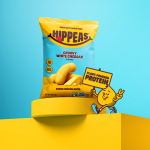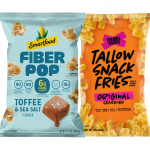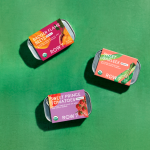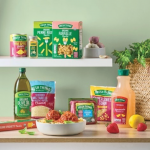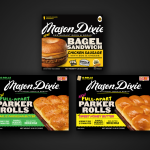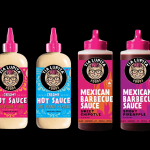A Friendly Freezer: Frozen Food Startup Diversifies Via Cold Storage
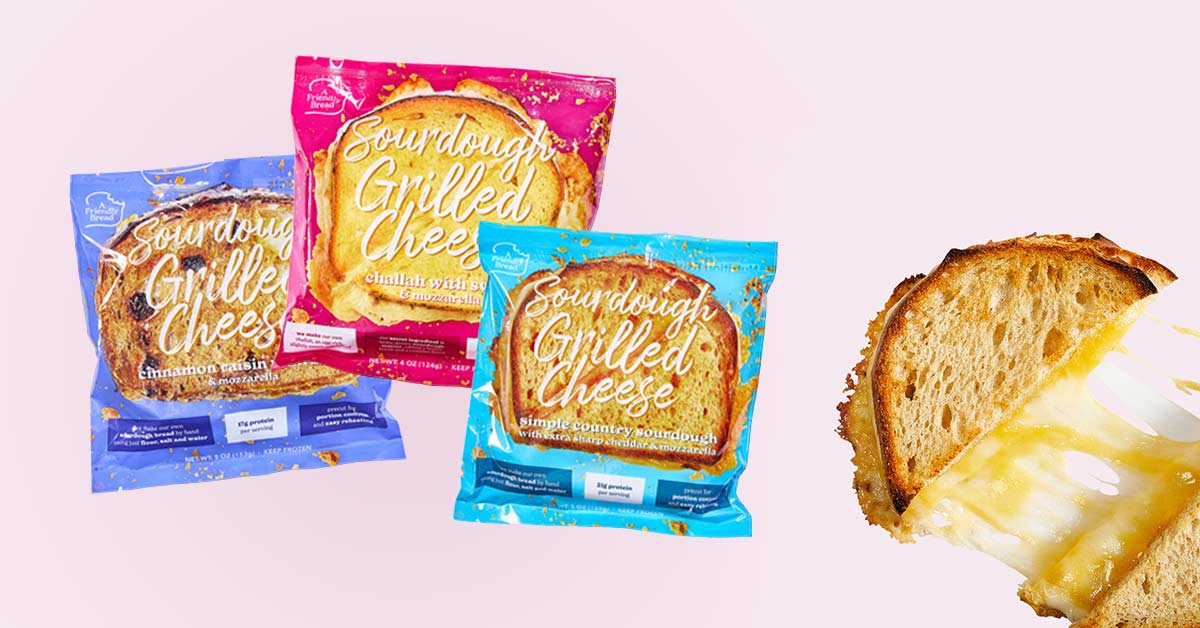
Frozen sourdough grilled cheese startup A Friendly Bread is opening up access to its hottest asset: freezer space.
Earlier this summer, and after a nearly two-year-long search, A Friendly Bread founder Lane Levine now holds the master lease for a former Kosher chicken processing plant in the Baltimore area. The space comes with a 5,000 sq. ft. freezer, 2,000 sq. ft. refrigerator, large processing room and plenty of open office space. It’s now aiming to use its extra cold storage space as passive income while it rehabs and readies the facility for production.
The Baltimore-based brand currently sells a 3-SKU line of ready-to-heat, frozen grilled cheese sandwiches made with its own sourdough bread. The company began by selling sourdough loaves at farmers markets and small, local independent grocery stores in 2018 and has been operating out of B-More, a shared commercial kitchen space.
That space has allowed Levine to “try out many iterations of the business model” including sourdough bread home delivery and even a quick stint selling a sourdough cracker-like product to retailers like Whole Foods. Now in its third iteration Levine believes the business has found “the promised land of better margins” in a value-added product.
“Any retail operation with fresh bread is a really low-margin proposition,” Levine said, while explaining the company’s transition to ready-to-heat grilled cheeses. “You’re adding some labor, and the cheese and some time and packaging, but it still does not even compare the value that you can extract out of that product.”
He explained that one large sourdough loaf can sell at retail for about $9; when that same loaf is sliced into 18 pieces, or by Levine’s math – a case and a half of grilled cheeses – it becomes $54 worth of product. That line, which debuted at The Fresh Market in 2022, now includes Extra Sharp Cheddar and Mozzarella, Cinnamon Raisin with Brie and Mozzarella and Challah with Swizz and Mozzarella varieties; it is distributed to over 500 stores nationwide including Whole Foods, Wegmans and Giant Food.
The company has reached a spot where it sees growth on the horizon and is now able to level up because of the new facility, but Levine noted that won’t even be enough to push the new space to maximum capacity.
“Even if we were to blow up and 10x or 20x where [the business is] right now, we wouldn’t come close to needing all of that freezer [and refrigerator] space,” Levine said. “We saw it as an opportunity, if we could take on this burden of renting the space [we could] begin to turn towards other businesses and be a resource for storing product and helping to ship out products and that would in turn help to keep my business more stable.”
The six-year-old company has been in search of a path to profitability as it has innovated and iterated over the years; it believes this source of passive income may put it on the right track. As A Friendly Bread entered the frozen space, Levine himself had trouble finding cold storage and recognized this will likely always be a need, particularly for small businesses like his. Now he’s working to get the word out and, in addition to offering space to small frozen and refrigerated food and beverage businesses, is hoping to support local caterers, farmers markets and small retailers who may need extra seasonal storage.
“My realtor’s main business was in parking lots, and that’s what it’s like – it’s like being a parking lot owner,” Levine joked about his new storage business. “I still get to be in control of the freezer. I’m the one who takes in people’s stuff and takes it back out. I think being a landlord sounds extremely scary, and being a parking lot owner sounds a little less scary.”
Parking In A Profitable Path
The brand is on the cusp of a new period of growth, Levine added, and is working to build beyond retail and is seeing strong traction in the foodservice channel. That means the proceeds from the new “parking lot” business will provide essential income as it works to scale up and understand this new channel.
Although the grilled cheese business was created to tap whitespace in the growing retail frozen sandwich market, he said maintaining category average velocities in grocery has been a constant challenge. Levine said the brand struggles to meet the category average of 2 units/per store/per week rate even after securing space at large retailers.
That is likely due to consumers’ lack of familiarity with the product type in the freezer aisle, he said: “It’s a little foreign to them, and it’s hard to get people interested in it.” But he has noticed the brand getting “passive” but strong traction in on-premise spaces, particularly coffee shops.
“The value proposition of, ‘oh, I’m in a coffee shop, there’s five items to order hot, and one of those is a gourmet grilled cheese’ – that’s an easier decision for a consumer,” he said. The decision is also easier for the shops themselves as it reduces the time, labor and resources needed to provide this type of product to its customers.
In addition to coffee shops, the brand is gaining traction in online grocery, which Levine believes offers a similar opportunity as foodservice with a lower barrier to entry and higher margin and volume potential. The company recently launched with Hungryroot and is in conversations with a handful of similar platforms.
The primarily self-funded company, aside from a handful of loans “here and there,” is not looking to “throw everything they’ve got” at a channel just to make it work, Levine said, but rather do what it has been doing – stay small, test and learn until it finds the right product-market fit.
“There are going to be some channels where the product just flies, and that’s because you’ve got your right customer, it’s not because you poured every last cent into that channel. You met the customer that you needed to meet,” he said.

